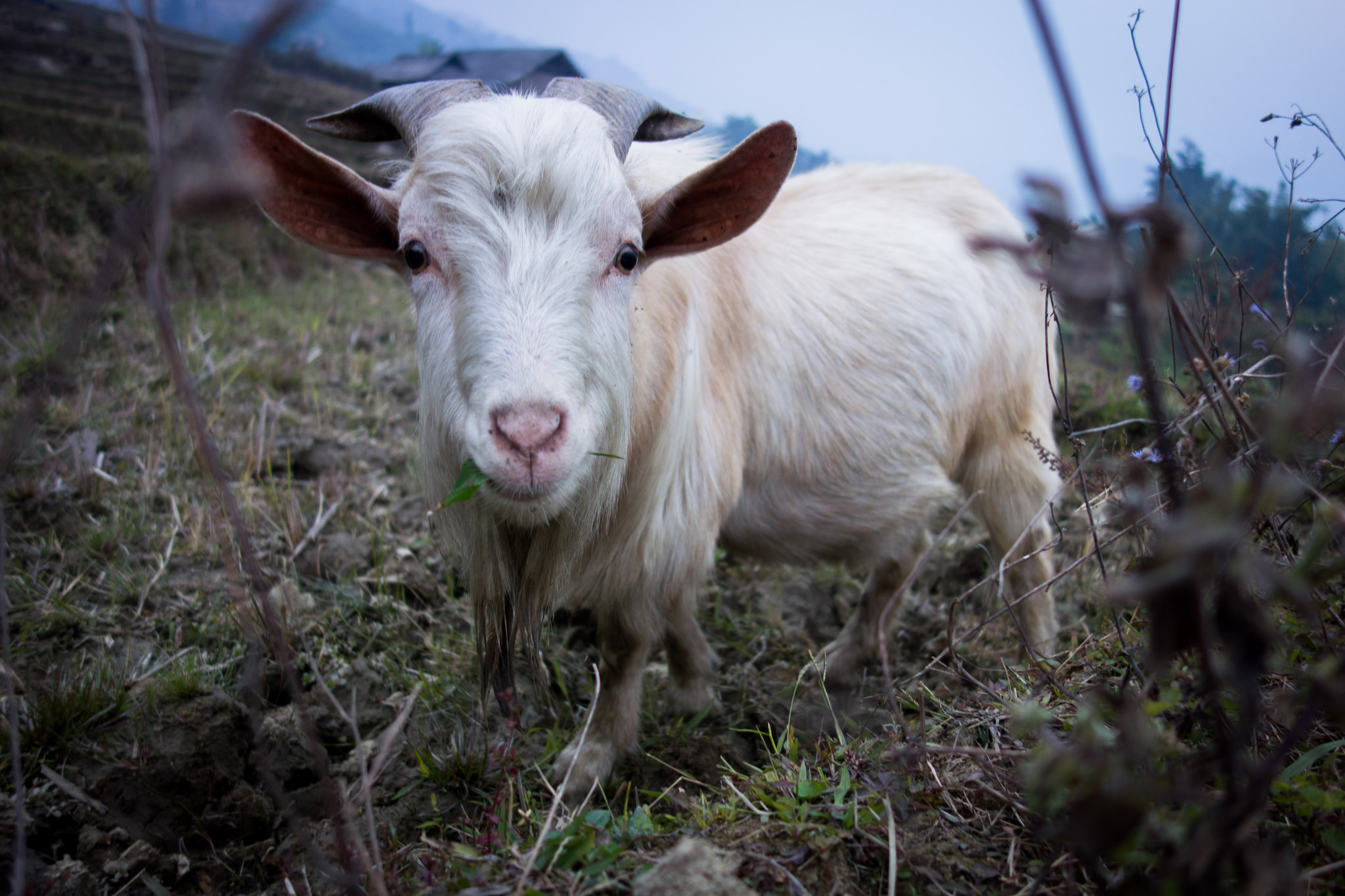Man's New Best Friend Is a Goat?

Get the world’s most fascinating discoveries delivered straight to your inbox.
You are now subscribed
Your newsletter sign-up was successful
Want to add more newsletters?

Delivered Daily
Daily Newsletter
Sign up for the latest discoveries, groundbreaking research and fascinating breakthroughs that impact you and the wider world direct to your inbox.

Once a week
Life's Little Mysteries
Feed your curiosity with an exclusive mystery every week, solved with science and delivered direct to your inbox before it's seen anywhere else.

Once a week
How It Works
Sign up to our free science & technology newsletter for your weekly fix of fascinating articles, quick quizzes, amazing images, and more

Delivered daily
Space.com Newsletter
Breaking space news, the latest updates on rocket launches, skywatching events and more!

Once a month
Watch This Space
Sign up to our monthly entertainment newsletter to keep up with all our coverage of the latest sci-fi and space movies, tv shows, games and books.

Once a week
Night Sky This Week
Discover this week's must-see night sky events, moon phases, and stunning astrophotos. Sign up for our skywatching newsletter and explore the universe with us!
Join the club
Get full access to premium articles, exclusive features and a growing list of member rewards.
Could your next pet be a goat? New research suggests that these farm animals try to communicate with people in the same way that dogs and horses do.
In a series of experiments, researchers found that when the animals had a problem that they couldn't solve alone, the goats would gaze at a person for help. The research, published this week (July 5) in the journal Biology Letters, also showed that goats will change their actions in accordance with a person's behavior.
Goats were the first domesticated livestock species, about 10,000 years ago, according to lead author Alan McElligott of Queen Mary, University of London. [See Photos of Heritage Livestock Vanishing Across the US]
"From our earlier research, we already know that goats are smarter than their reputation suggests, but these results show how they can communicate and interact with their human handlers even though they were not domesticated as pets or working animals," McElligott said in a statement.
To test the goats' communication skills, the researchers trained the animals to remove a lid from a box to receive a reward. The reward was then made inaccessible, and the goats' reactions toward the experimenters — who were either facing the goats or had their backs turned away — were recorded.
The researchers found that the goats would gaze toward the forward-facing person more often, and for longer periods of time, than they would with the people who had turned away. In some instances, the goats would also approach the forward-facing person before returning to the box.
"Goats gaze at humans in the same way as dogs do when asking for a treat that is out of reach, for example," study researcher Christian Nawroth, also of Queen Mary, said in the same statement. "Our results provide strong evidence for complex communication directed at humans in a species that was domesticated primarily for agricultural production, and show similarities with animals bred to become pets or working animals, such as dogs and horses."
Get the world’s most fascinating discoveries delivered straight to your inbox.
The authors said that they hope the study will help people to better understand the ability to learn that domesticated animals like goats, dogs and horses possess, and how that affects their interactions with humans. By learning more about what drives the animals' relationships with humans, the researchers said that those working with animals might be able to make overall improvements in the animals' welfare.
Original article on Live Science.

 Live Science Plus
Live Science Plus










